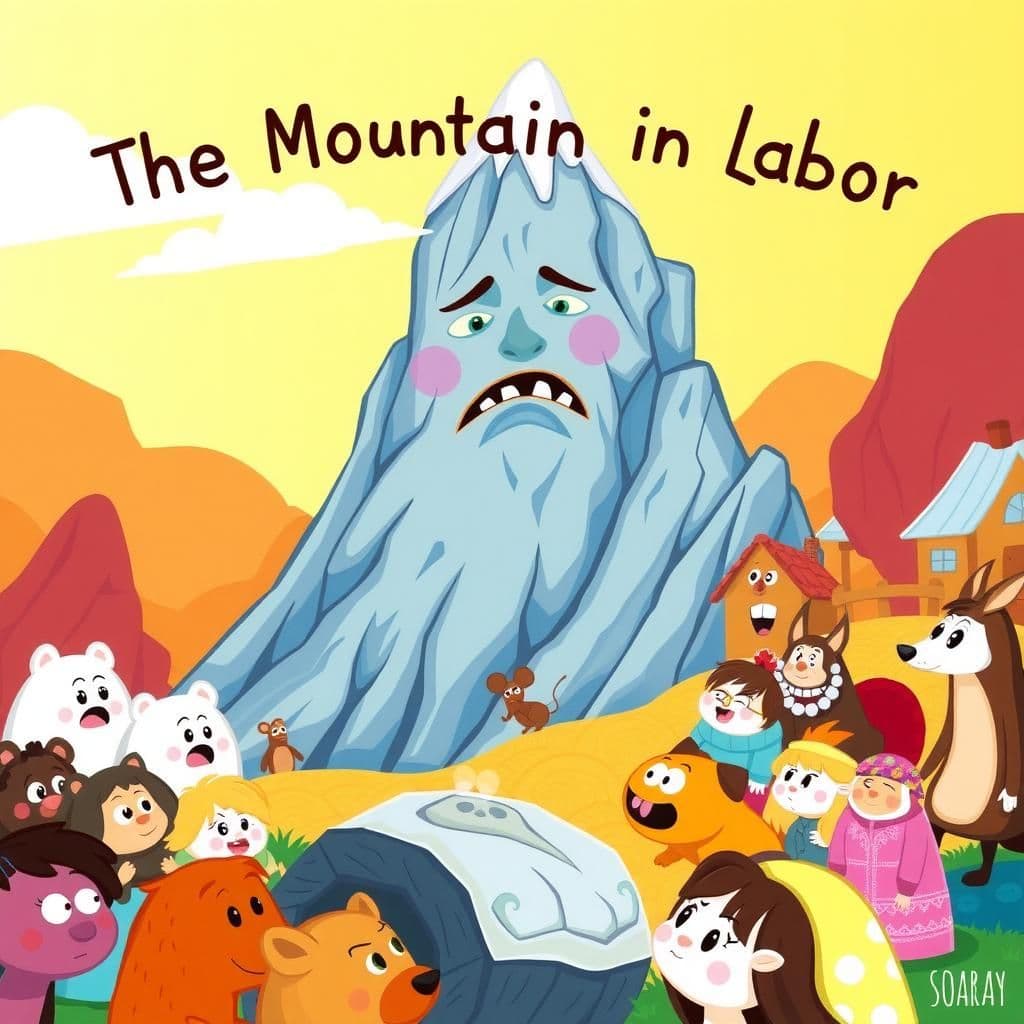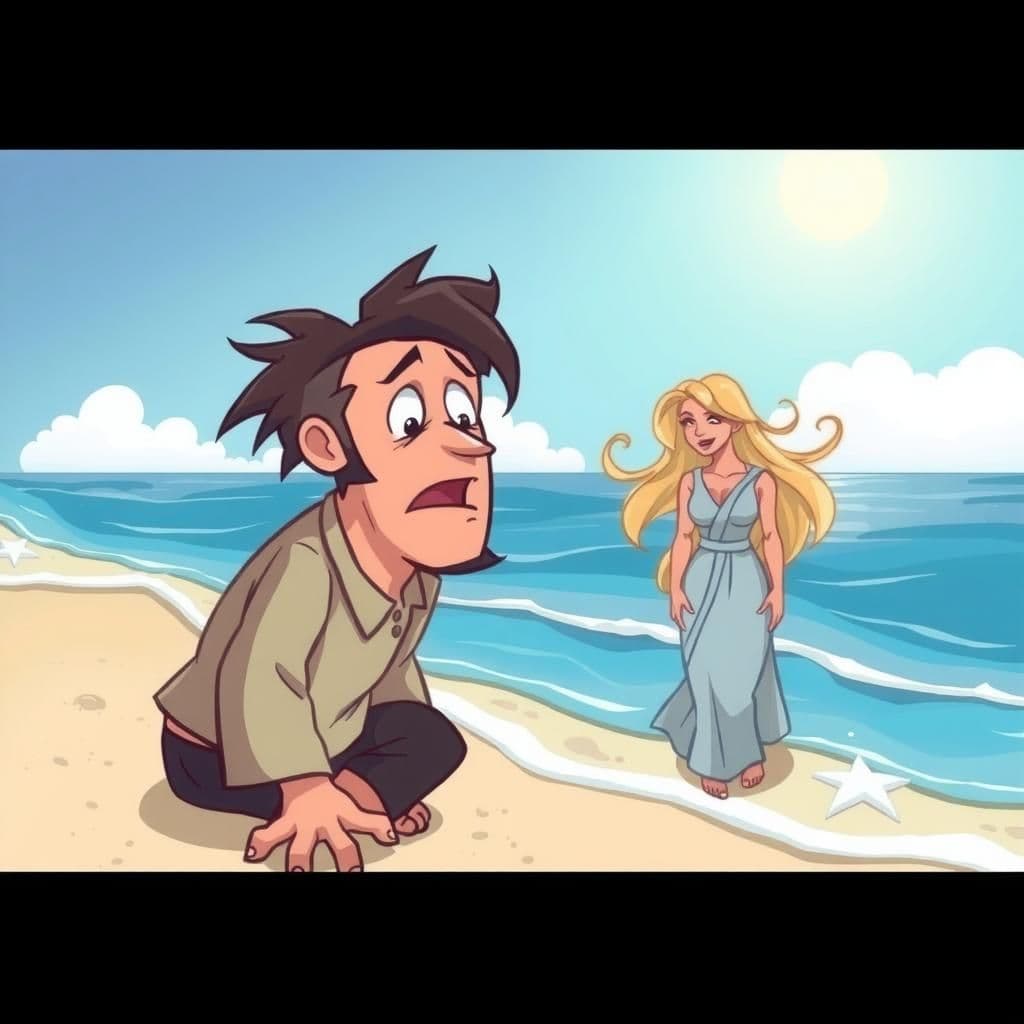The Mountain in Labor

Story Summary
In "The Mountain in Labor," a seemingly distressful mountain draws a crowd eager to witness a significant event, embodying the anticipation often found in unique moral stories for kids. Ultimately, the mountain produces nothing more than a small mouse, illustrating the lesson that great expectations can lead to trivial outcomes, a theme reflected in many real-life stories with moral teachings. This easy small story with moral reminds us not to make much ado about nothing.
Click to reveal the moral of the story
The moral of the story is that often, what appears to be a significant event may result in something trivial.
Historical Context
The story of "The Mountain and the Mouse" is attributed to Aesop, a storyteller from ancient Greece, who is known for his fables that convey moral lessons through animal characters. This particular fable reflects themes of overreaction and the disparity between appearance and reality, common in Aesop's tales, and has been retold in various cultures, often emphasizing the folly of fear and anticipation over trivial matters. The phrase "much ado about nothing" has also been popularized in Shakespeare's works, illustrating the enduring influence of such themes in literature.
Our Editors Opinion
This story highlights the tendency for people to create drama and anxiety over situations that ultimately yield insignificant outcomes, a reflection of how modern society often reacts to sensational news or social media hype. For example, consider a viral social media post that claims a major celebrity is involved in a scandal; the resulting frenzy could overshadow more pressing issues, only for the truth to reveal it was a minor misunderstanding.
You May Also Like

The Shipwrecked Man and the Sea
In "The Shipwrecked Man and the Sea," a shipwrecked man awakens on the shore and blames the Sea for its deceptive calmness that leads sailors to disaster, making it a compelling example of well-known moral stories. The Sea, taking the form of a woman, defends itself by explaining that it is the winds that disturb its natural tranquility and create perilous waves. This short story serves as a quick read with moral lessons suitable for class 7, illustrating the importance of understanding the true causes behind appearances.

The Mountain and the Mouse
In "The Mountain and the Mouse," a mountain's dramatic labor attracts a crowd from seven cities, all eagerly awaiting a grand event. Instead, a humble Mouse emerges, prompting mockery from the onlookers, but it confidently claims expertise in diagnosing volcanic activity. This short moral tale serves as a reminder that true wisdom can come from unexpected sources, a theme often found in timeless moral stories for kids.

The Mouse and the Bull
In this creative moral story, a Bull, enraged after being bitten by a Mouse, attempts to capture the tiny creature but ultimately fails, ending up perplexed and exhausted outside the Mouse's hole. Seizing the moment, the Mouse nibbles the Bull again, demonstrating that in animal stories with moral lessons, the small can indeed inflict harm on the seemingly mighty. This tale illustrates that strength does not always guarantee success, a valuable lesson for childhood stories with moral teachings.
Other names for this story
Mountain's Roar, The Birth of a Mouse, Labor of the Mountain, Anticipation at the Peak, The Mountain's Surprise, From Roar to Whiskers, The Great Mountain Mystery, Tiny Outcome from a Giant.
Did You Know?
This fable highlights the theme of overreacting to situations, illustrating how anxiety and anticipation can often lead to disappointment when the reality is far less dramatic than expected. The story serves as a reminder to maintain perspective and not to make a big deal out of minor issues.
Subscribe to Daily Stories
Get a new moral story in your inbox every day.